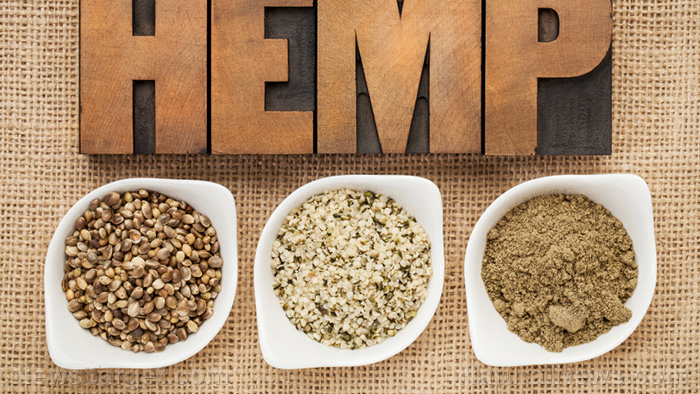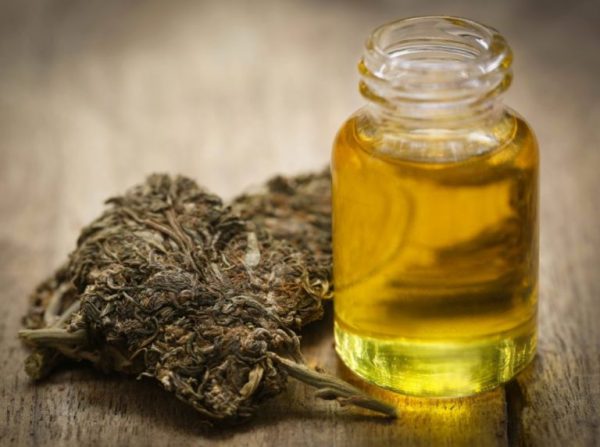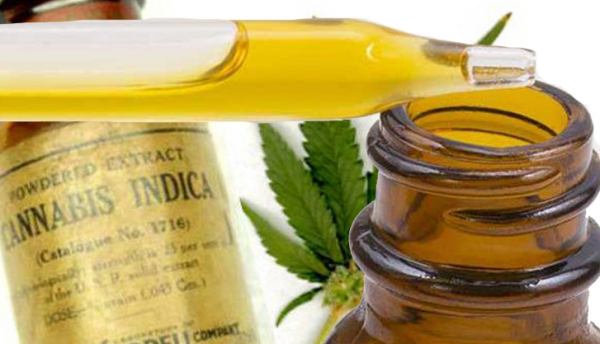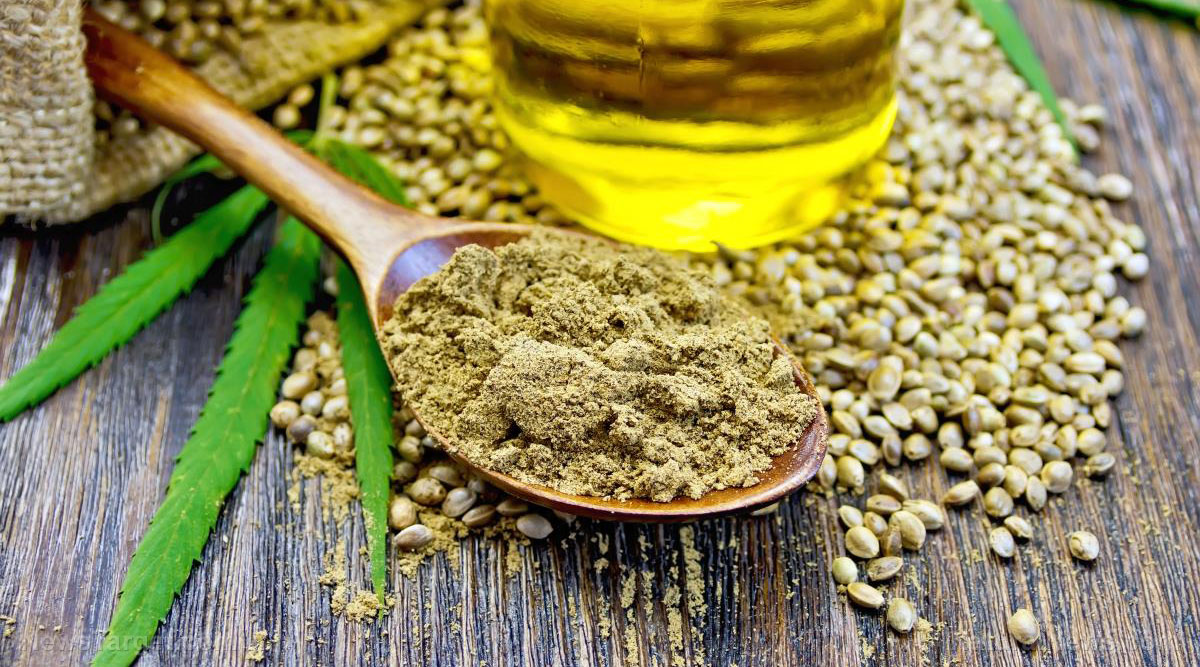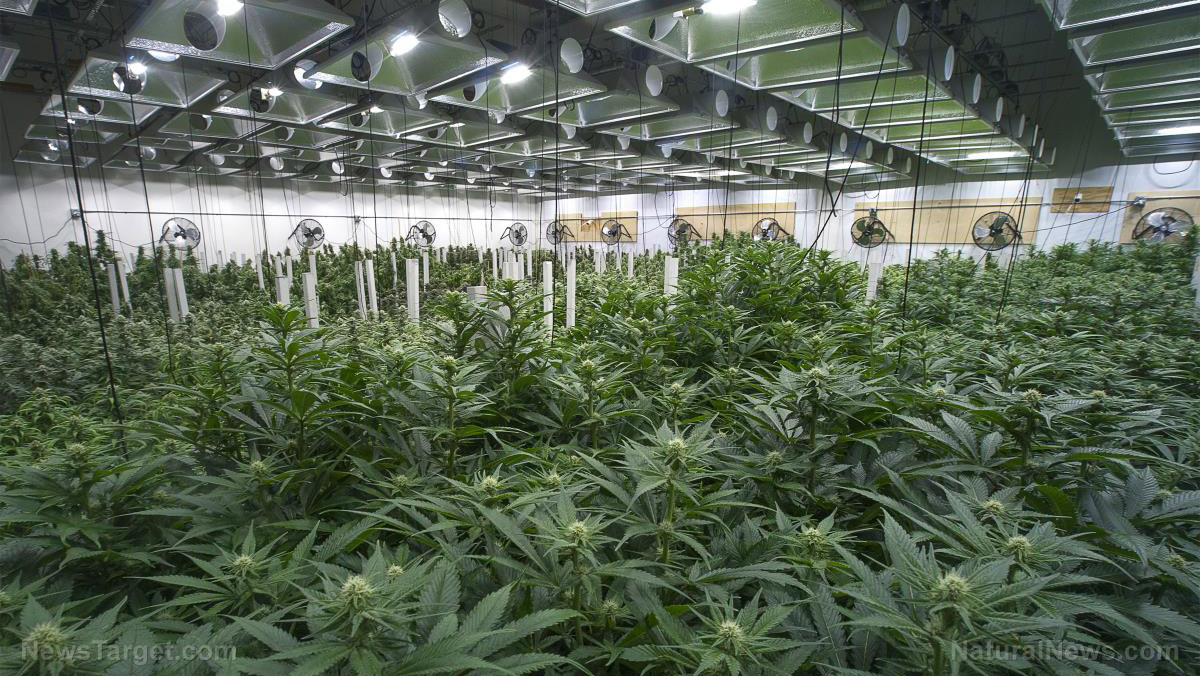Rural Economic Boom? Hemp on the Horizon in WNC
08/18/2016 / By hempscience
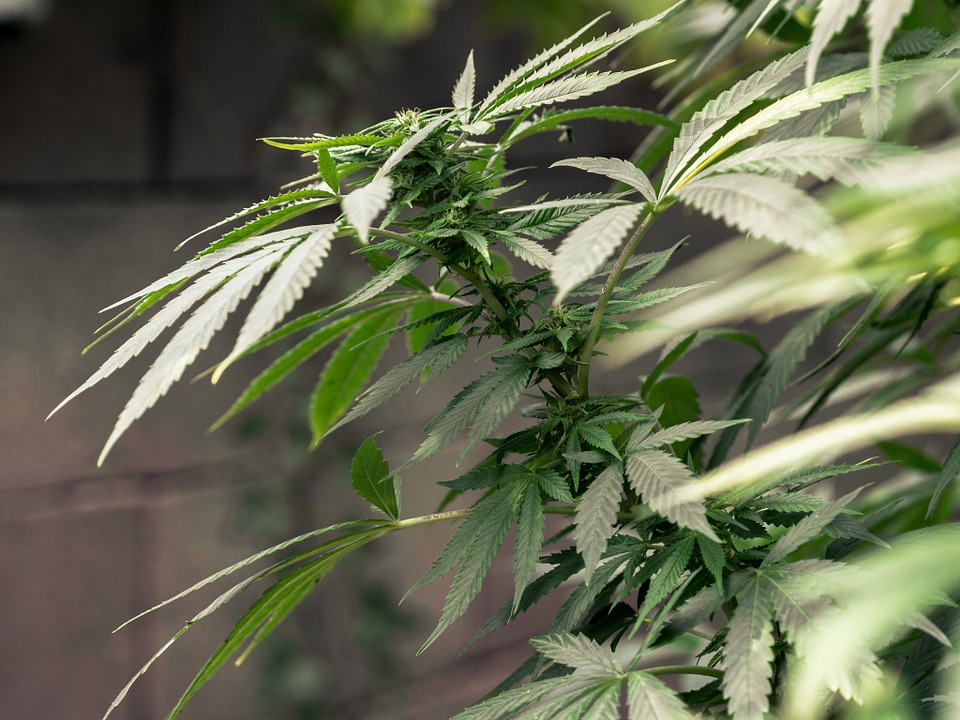
As Mike Lewis spoke by phone from his Kentucky farm, a loud whirring like an onslaught of cicadas rose in the background, threatening his 19-month-old daughter’s hard-won nap.
(Article by Mackensy Lunsford)
“Well, you have good timing,” Lewis sighed in the weary tone of someone used to such intrusions. “Here comes the DEA right now over my farm.”
The helicopters buzz over Lewis’s farm up to three times daily. That’s because among the shiitake logs, heirloom tomatoes, heritage pork and other high-end foods the farm produces, Lewis and the fellow veterans in his Growing Warriors program are among the first to grow industrial hemp in the United States after its prohibition began in the ’30s.
Lewis and his team, mostly disabled veterans, are working to promote hemp’s commercial viability from the ground up while also trying to shake the plant’s reputation as the pet cause of marijuana advocates.
They’re growing hemp and processing it to make tool handles and textiles. They’re even weaving American flags using a donated loom, an effort that nods to hemp’s growth by America’s Founding Fathers.
Hemp and marijuana are members of the same species. But by definition, hemp contains no more than 3 percent of tetrahydrocannabinol, or the psychoactive chemical THC, making it useless as a recreational drug but good for strong, renewable fiber, food, fuel, animal feed and other uses, proponents say.
Today, most hemp used in the U.S. comes from places like China and Canada. Meanwhile, textile mills in regions such as Western North Carolina lie dormant while Americans import about $500 million worth of hemp annually.
But after the Agricultural Act of 2014 legalized the growing and cultivating of industrial hemp for research under state law, Kentucky led the charge. North Carolina might soon follow, with state farmers hoping to have seeds in the ground by next year.
Better late than never, said Fairview farmer and House Representative John Ager, whose family’s Hickory Nut Gap farm celebrates its centennial in Western North Carolina this year.
Ager represents farm interests in his legislative role, and promoted the passage of Senate Bill 313, which opened the door for a North Carolina hemp pilot program to operate under guidelines established in the 2014 Federal Farm Bill.
“We see it as a competitive problem,” Ager said of getting hemp seeds in Carolina soil. “Apparently this is a great state to grow hemp in and, if we don’t get this set up, then we’re going to lag behind other parts of the country like Kentucky.”
Ager, who has no space on his land to farm hemp himself, admitted to a cautious optimism when it comes to promoting the plant as a savior of rural communities. “I’m always a little skeptical when I hear of something that’s going to change the world and make it a better place,” he said.
Whether hemp will serve as a long-term business opportunity for rural communities remains to be seen, he said. “Rural North Carolina is struggling, so I’m just hoping it’s commercially viable long-term.”
Lewis sees hemp as a way to create jobs on American soil, from the field to the factory. “And it’s a liberty issue, if you look back to the way hemp was taken from the people and the principles of Founding Fathers, like Thomas Jefferson,” Lewis said.
Jefferson, a farmer himself, said farmers are the most valuable citizens for their vigorous and independent nature. “Because they’re bound to the land and truly understand liberty,” Lewis explained. “If you can feed and provide for yourself, you’re truly free.”
But hemp’s reputation, and the fervor with which marijuana advocates take up its cause, might be its biggest stumbling block.
When Senate Bill 313 came late last year, North Carolina Gov. Pat McCrory refused to sign, concerned with the plant’s relationship to marijuana. McCrory also advocated Drug Enforcement Agency involvement in crop testing and seed distribution and an Industrial Hemp Commission to oversee a pilot program and coordinate research projects with North Carolina State and Agriculture and Technical State universities.
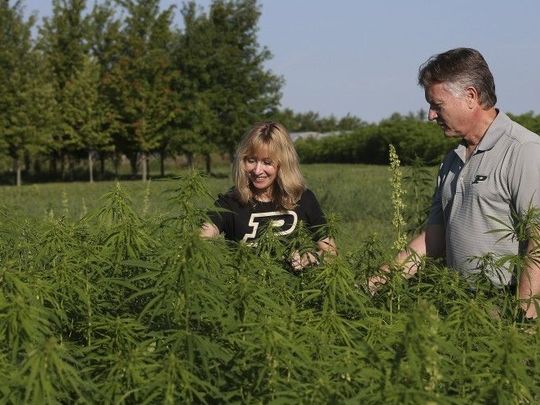
Purdue University researchers Janna Beckerman and Ron Turco check out a hemp test plot on a university farm. They are part of a Purdue team growing test plots of hemp so they can offer science-based crop advice to commercial hemp growers. (Photo: File photo)
“The legislation tasks a new commission to establish from the ground up a regulatory structure to reintroduce a crop to North Carolina,” the governor said in a statement. “Although there is a clear intent to ensure this program supports agriculture and research goals, a strong regulatory framework to safeguard against abuse is critical to its success and the safety of North Carolinians.”
Still, he acknowledge the program’s potential to provide opportunities for North Carolina farmers, signing a bill last month to allow farmers to apply for permits to grow hemp early next year.
Meanwhile, all eyes are on pioneering hemp farmers like Lewis, including those of the DEA agents hovering 300 feet over his fields.
That’s despite the fact that Lewis’s plants are dioecious, meaning their seeds produce male and female plants. The main mind-altering chemical in marijuana is tetrahydrocannabinol, found in resin produced by the leaves and buds of the female cannabis plant.
So, with the help of a few pollinators, Lewis’s hemp has the power to turn any illicit marijuana within a mile radius into seedy, low-THC ditch weed, practically useless on the illicit drug market.
“That’s kind of the irony of it,” Lewis said. “If they just start throwing hemp seeds over the forest out of that chopper, they’d eradicate the problem on their own and save (taxpayers) a ton of money.”
Despite those biological realities, Lewis and other farmers face an uphill battle when it comes to convincing the government that drugs aren’t part of their agenda.
The U.S. Department of Agriculture, with the DEA, last week doubled down on marijuana prohibition, reiterating that even medical marijuana remains a schedule I drug under the Controlled Substances Act.
Included in the announcement was a lengthy statement on hemp that reaffirmed its federally illegal status in a strong rebuke to hemp growers.
The statement reiterated that the Agricultural Act of 2014 legalized growing of industrial hemp for research purposes where legal under state law, but did not remove industrial hemp from the controlled substances list. In other words, hemp is still considered a dangerous drug in the eyes of the United States government.
“I’m a farmer, and I raise my family on a farm,” Lewis said. “So it’s kind of insulting to me to even imply that I would risk my farm or my family’s security by even throwing (marijuana) in. It’s just misinformation and propaganda.”
But the fact that many hemp-based products are emblazoned with marijuana imagery and references doesn’t help hemp’s perception in the public eye.
Blake Butler, an organizer of HempX Asheville, called the USDA’s decision “frustrating.”
Still, he’s carefully marketed his HempX Asheville, the largest hemp-centric festival east of the Mississippi, taking place at Highland Brewing Company this weekend, as a family-friendly look at the industry side of hemp in a time when many farmers are working to transition from tobacco.
“We don’t think it’s a magic bullet, but part of a way to build the economy in rural communities that need it the most,” Butler said.
Jeff Cartonia, the executive director of the North Carolina Industrial Hemp Association, agrees that hemp takes on a sort of green-tinged mysticism among some of its proponents. “The more you learn, why is it hemp and not something different?” he said.
Kenaf, also called Java jute, is another renewable fiber used for industrial use and is perfectly legal. “That’s green and could certainly replace an element of wood pulping,” Cartonia said. “But very few people have even heard of it, and very few people are pushing the use of it.”
Hemp is useful for thousands of efforts, he said. But the problem is, after years of prohibition, little infrastructure exists to process it.
“If anything’s holding hemp back, besides the general misconception, it’s really the industrial readiness to utilize large amounts of it,” he said.
By Cartonia’s estimate, less than 20,000 acres of hemp are growing in the country at the moment — and more questions than answers.
“The whole point of all of this is to do a pilot research study not only to see if it will grow, how it will grow and how you need to grow it, then there’s the whole market component of if you grow it, will there be market suitors for it, and at what value?” he said.
North Carolina farmers aren’t likely to make tobacco money from hemp, at least not until industries are willing to make big-money investments. “At the end of the day, if you can’t sell it, there’s no reason to grow it, so there does need to be some type of paradigm shift,” Cartonia said.
The pilot programs are a good start, especially for towns like Livingston, Kentucky, population 206, that are waiting for a paradigm shift. Deep in Appalachia, coal and manufacturing jobs have fled the area, leaving a vacuum when they depart to pursue more lucrative opportunities.
“Our town’s falling down,” said Lewis, whose farm lies just a mile outside of the town’s borders. “This is a poor community.”
But Lewis imagines a sort of modern New Deal where the repeal of hemp prohibition leads to an influx of new jobs. In abandoned mills he envisions hemp-processing facilities.
“We just made up that we needed to widen our roads so the federal government could create 50 or 60 short-term jobs,” he said. “We’ve manufactured things that aren’t even relevant to create jobs. Why wouldn’t we take something where there’s no industry and see that as an opportunity rather than a deterrent?”
For 10 years, Lewis has advocated for local food systems, as Jefferson did. Hemp has to have the power to communicate what local farmers can do with a strip of land and a few seeds, he said.
“You talk to people with a tomato in your hand, and they look at you like you’ve got four heads and you come from Mars because you can go to Walmart and buy a tomato,’ said Lewis. “But when I started going around with a piece of hemp that they can touch, and in three minutes you could show them how to turn it into a piece of twine, you see this connection,” he said. “The light comes on.”
Ultimately, farmers like Lewis rely on that connection to move hemp forward. “We’re at the forefront of a huge opportunity,” he said. “How we use it will eventually determine the value of it.”
Read more at: citizen-times.com




